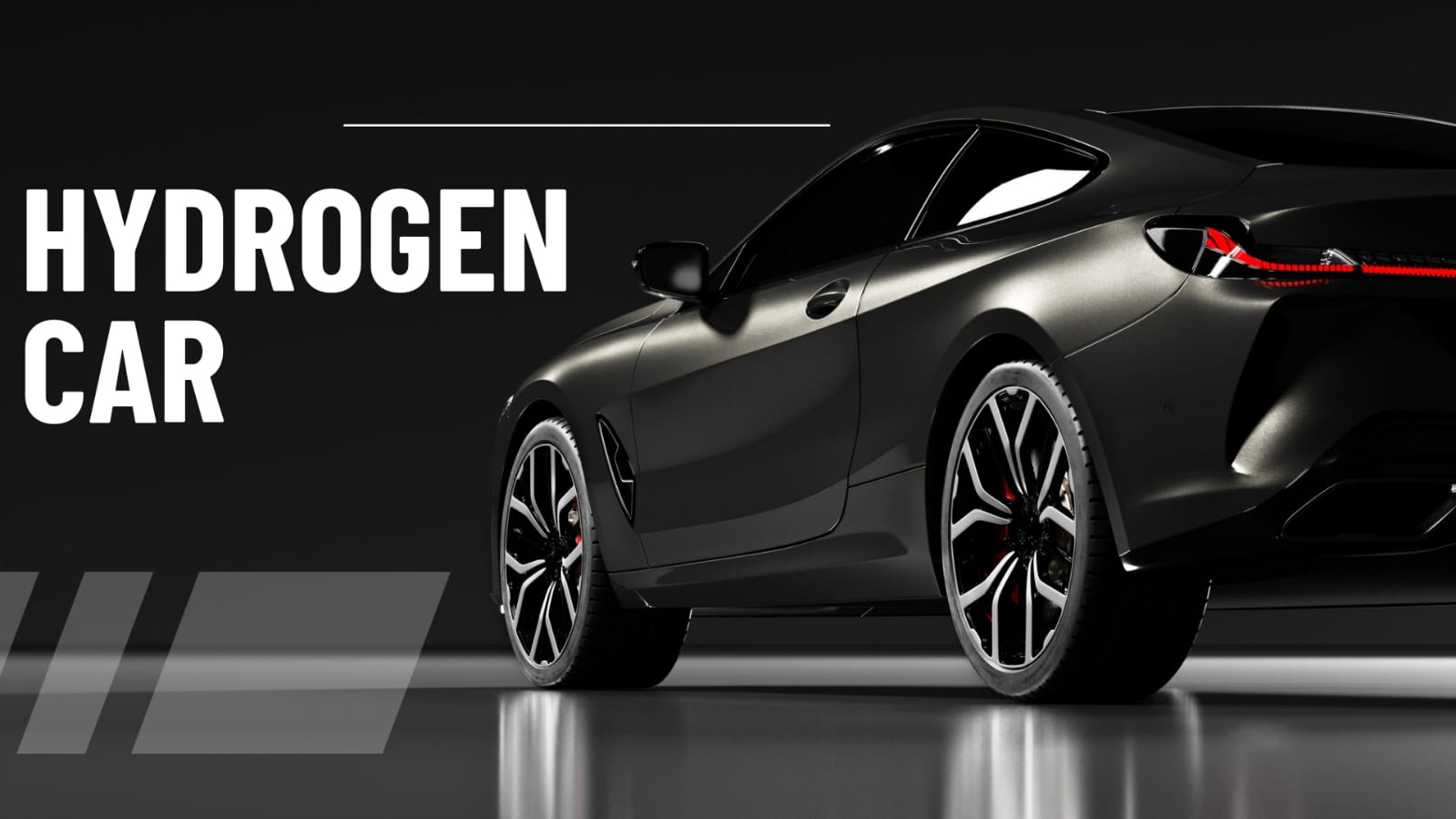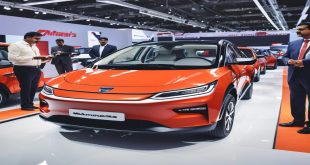In this article, you’ll learn how a hydrogen car works.
Types of hydrogen-powered engines, pros and cons of hydrogen cars, whether they have any future, and whether you should buy them or not.
Hydrogen-powered engines go back a lot further than you might think.
More than two centuries ago, the French inventor, François-Isaac de Rivas, developed a primitive
engine that was powered by hydrogen and oxygen and ignited by an electric spark.
Hydrogen vehicles can be powered in two different ways.
One with a fuel cell system.
And another with an internal combustion engine.
Let’s find out how a hydrogen-powered car runs with fuel cells.
So, a hydrogen-powered car is powered by an electric motor.
It consists of a fuel cell, a device that takes chemical energy in the form of hydrogen, and
turns it into electricity that can power an electric motor, just like a battery.
First, hydrogen is stored in a tank that is thick-walled, crash-tested, and usually
under the rear seat, is mixed with air and pumped into the fuel cell.
Inside the cell, a chemical reaction extracts electrons from the hydrogen. The leftover
Hydrogen protons move across the cell and combine with oxygen from the air to produce water.
Meanwhile, the electrons create electricity, which charges a small storage battery used to
power an electric drivetrain, just like in an electric vehicle. This is why the vehicles are
called fuel cell electric vehicles, as compared to the battery electric vehicles, which are seen
increasingly on our roads already.
The biggest difference between fuel cell and battery EVs, like the Tesla car, is the source.
of electricity.
Electric cars run on batteries charged electrically, even from solar panels.
But hydrogen-powered cars produce their own electricity.
They have their little power plant on board; that’s the fuel cell.
And now, let’s find out how a hydrogen car runs with an internal combustion engine.
These types of vehicles are different from hydrogen fuel cell vehicles due to the combustion process.
The hydrogen IC engine is a modified version of the conventional gasoline-powered engine.
In this way, the combustion process is similar to that of other high-temperature combustion
fuels such as gasoline, diesel, or natural gas. Hydrogen engines are actually similar to
powered motors in a lot of ways.
They both use a four-stroke design for intake, compression, ignition, and exhaust, and both
make the same sort of sound.
The main difference is in the exhaust system.
The absence of carbon means that no CO is produced, eliminating the main greenhouse
emissions of a conventional petroleum engine. Instead of toxic nitrogen gases,
Hydrogen motors produce water as the main byproduct of their combustion cycle.
Because of the heat also produced by the engine, there are still some harmful
emissions, but not nearly as much as a normal gas engine produces. Therefore,
Hydrogen engines are not considered to emit zero emissions. The downside is that
Hydrogen is difficult to handle.
Due to the very small molecular size of the hydrogen atom, hydrogen is able to leak through
many solids, the remaining hydrogen gas, mixed with air, is potentially explosive.
Hydrogen has so far struggled to deliver on its initial promise as an alternative.
road transport fuel, but it is a topic that refuses to go away.
There is still great potential for its use in hydrogen fuel cells to generate emissions.
free electricity. There are hydrogen cars on UK roads, and while you might be hard-pressed
To find one right now, manufacturers like Toyota, Honda, and Hyundai have already produced
their hydrogen models. Hydrogen is a cleaner fuel than gasoline or diesel. It is
completely emission-free when converted into fuel cell systems to generate electricity.
Hydrogen is much less fussy than petrol or diesel, mixing and burning fully and
efficiently, in a much wider range of air-to-fuel ratios.
With the fuel cell, the vehicle contains much of the hydrogen tank and fuel cells as well.
as electric motors, all combined into a corresponding unit.
A hydrogen IC engine simplifies the hardware, as it is essentially the good old combustion
engine that has been converted to run on hydrogen.
Existing engines can be adapted to use hydrogen instead of gasoline or diesel by
changing some components, such as the fuel delivery system and spark plugs.
An example is Toyota’s development of a hydrogen-powered three-cylinder racing engine.
taken from the GR Yaris and used to power a specially developed Corolla Sport.
entered in the Fuji 24 hours. How do you refuel a hydrogen car?
A hydrogen refueling station looks a lot like a petrol station.
In Germany, the US, and other countries, hydrogen refueling pumps are located at conventional
petrol stations.
You can fill it with gasoline or diesel.
A hydrogen bowser consists of a pump with a nozzle that clamps onto the car.
Once the seal has been made, hydrogen gas begins to fill the tank.
If the seal is not attached, it will not start pumping, making sure there is no leakage.
Hydrogen refueling stations can fill a typical hydrogen car tank.
in about five minutes. This is an advantage over battery-powered cars.
which can take a lot longer to charge. Is hydrogen the future of cars?
Hydrogen is the most abundant element on the planet, and it is also the cleanest type of fuel.
having powered engines long before 1807. However, hydrogen hasn’t really taken off in
motoring world.
Many manufacturers have experimented with the technology, and while some have committed
To produce hydrogen-powered vehicles in small numbers, mass uptake is still a long
way off.
Meanwhile, sales of electric cars continue to grow, with battery electric vehicles
selling 162% more every year compared with the previous year.
And with such interest, manufacturers can afford to put money into EVs on a niche
technology like hydrogen. Another reason for the struggle for hydrogen vehicles is the
existing infrastructure. There are only a small number of hydrogen-fueled stations. Nowhere
near enough that drivers can operate with petrol and diesel. Hydrogen vehicles are
less efficient than EVs. Because hydrogen does not occur naturally, it must be extracted.
then compressed in the fuel tank. At this point in time, the only fuel cell EVs in
production are the Hyundai Nexo crossover and Toyota Mirai, along with Honda, which recently
pulled the plug on the Clarity fuel cell EV.
Both Hyundai and Toyota use hydrogen to power the fuel cell, which, through a chemical reaction,
converts energy into electricity and powers an electric motor to propel the vehicle.
But it is a complicated process, and the application is expensive.
Now, Toyota is proposing a more direct, and almost clean, solution in the form of
an internal combustion engine that runs on hydrogen. So what are some of the advantages?
of hydrogen vehicles? Faster refueling. Compared to recharging an electric car,
A hydrogen vehicle can be fully fueled in 3 to 5 minutes. There are no harmful emissions. The only thing
is to be emitted from a hydrogen fuel cell car is water. An impressive range. With a range of
Around 300 miles per tank, hydrogen cars are on par with many conventional vehicles.
Good efficiency levels.
Fuel cell powertrains are much more efficient at getting energy out of hydrogen than traditional
cars are getting energy out of petrol or diesel.
And what about the disadvantages of hydrogen cars?
Refueling locations.
There are currently only 17 refueling stations in the UK, and each station costs 1.3 million pounds to build.
Expensive
Although the cost of fueling a hydrogen car is similar to that of traditional fuels, developing the technology isn’t cheap, nor is storing or moving hydrogen itself.
Perceived safety risk
Hydrogen is flammable, but then again, so is gasoline, and that hasn’t stopped us from driving.
millions of gasoline cars. But did you know that hydrogen cars are densely packed with their energy?
storage, they are generally able to achieve long ranges, reaching 300 miles at a time.
whereas most fully electric vehicles can travel between 100 and 200 miles on a single charge.



